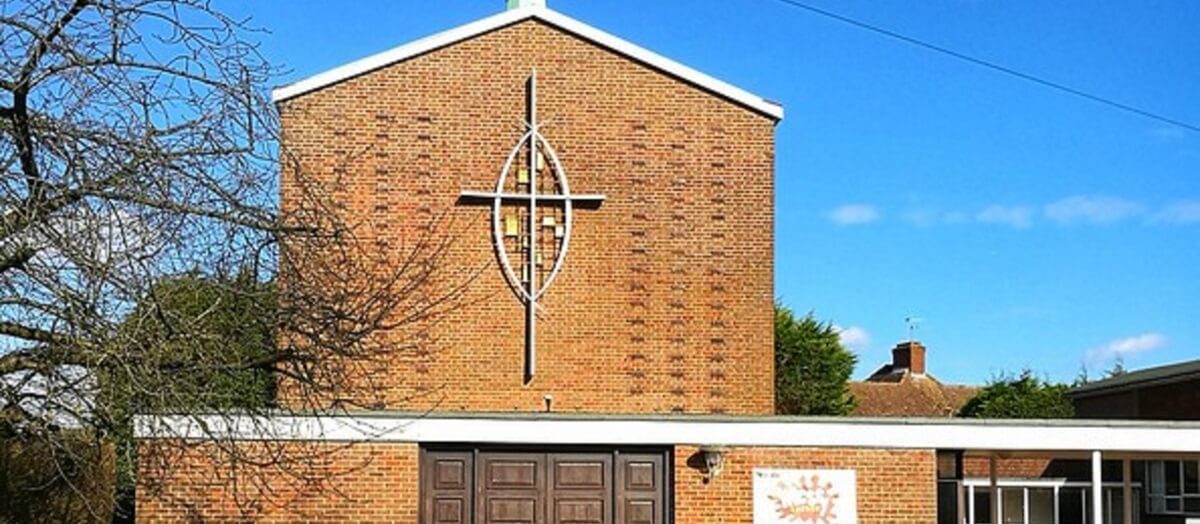Margaret and Ramsay MacDonald’s children and some surprising connections to Buckinghamshire
by Alison Bailey
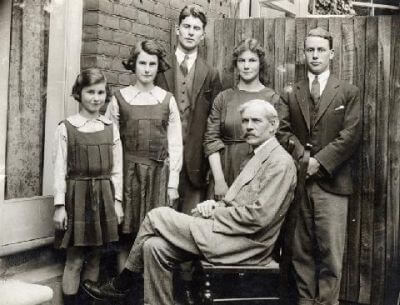
The first Labour Prime Minister, Ramsay MacDonald, and his wife Margaret “pitched upon a small place at Chesham Bois” as a weekend home for their six children. Lindfield, Bois Lane was a happy family home. “When they came in and shut the door they came in to be at home with us for games, fun and happiness”, Ishbel, the oldest daughter recalled. However, the death of the youngest son, David, age six, followed by the death of their mother, in 1911 were blows the family never fully recovered from. At the time of Margaret’s death, Alister was 13, Malcolm 10, Ishbel, 8, Joan, 2 and the baby, Sheila, just a few months old.
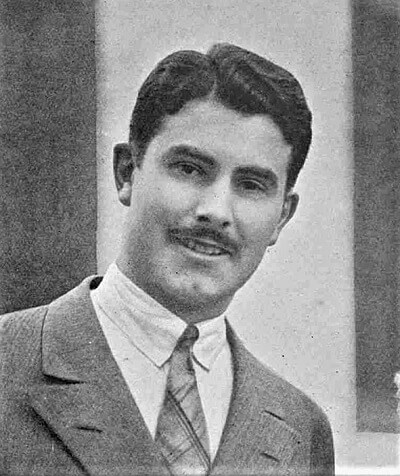
Gradually Ramsay MacDonald picked up the pieces. He engaged a housekeeper at 3 Lincolns Inn (the family’s London home) and resumed his political life. Alister returned to Bedales School, the then only co-educational boarding-school, where he was joined by Malcolm. As he shared his father’s deeply unpopular pacifist beliefs, Alister volunteered with the Friends Ambulance Unit during WWI. A talented artist, he chose a career in architecture which he studied at London University, becoming a member of RIBA In 1926. He had married his first wife, Edith, 4 years earlier. Like all the MacDonalds, Alister travelled frequently, and in America found that, as the eldest son of the Prime Minister, he was a celebrity. He made friends with many of the film stars of the era, including Charlie Chaplin, whom he invited to Chequers. He established successful architect practices in London and Edinburgh which specialised in cinemas and theatres and were involved in the post-war school building programme. He also designed Methodist churches at Harlesden, High Wycombe, and Amersham. St John’s Church in Woodside Road was completed in 1960, with a distinctive modernist design.
Malcolm, much to his father’s delight, followed him into politics, after reading Modern History at Queen’s College, Oxford. In 1929, he was elected to the House of Commons, representing a constituency in Nottinghamshire. In 1931, he joined his father in the Coalition Government, where he was appointed Parliamentary Under-Secretary, and then Secretary of State, for the Dominions and Colonies. Although he lost his parliamentary seat in the General Election of 1935, he was re-elected the following year, to represent Ross and Cromarty, where his Conservative opponent was Randolph Churchill, the son of Sir Winston. During WWII he was appointed Minister of Health in Churchill’s coalition government, before being sent to Canada as the British High Commissioner. Because he was unmarried at the time (he met his wife, Audrey in Canada), his sister, Sheila, served as his hostess.
Sheila, the youngest in the family, followed her older sisters to the City of London School for Girls and then on to the North London Collegiate School, where she became Head Girl. At Somerville College, Oxford, she read Philosophy, Politics, and Economics and won a hockey blue. A contemporary article in Time magazine described her as “a potent hockey player, addicted to tramping in bloomers”! Like all the MacDonald children, she was immersed in the Labour Party and considered a career in politics herself before working at Wormwood Scrubs prison. She took over from Ishbel as her father’s political hostess in 1935, accompanying him on several visits overseas, and was with him when he died in 1937. In 1948 she married Andrew Lochhead, a lecturer in social administration at Swansea University. She continued prison visiting, advocated penal reform, and served as a magistrate. For three years she was chair of the National Association of Prison Visitors.
Joan, the middle sister, studied medicine at Edinburgh, where she met her husband Alastair MacKinnon when they were both doing surgical work at the Royal Infirmary. They were married in 1932 at Chequers, which was also an extremely important part of Ishbel’s life. When Ramsay MacDonald was appointed Prime Minister in 1924, it was decided that Ishbel, as the eldest daughter, should abandon her studies in social sciences and become his official hostess. She was (and still is) the youngest person ever to take on the role. Age 20, she was one of the most famous women in Britain but was still not old enough to vote!
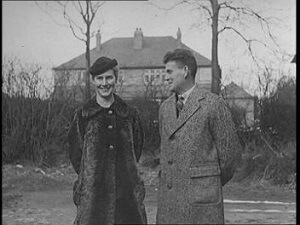
Incoming premiers were expected to equip Downing Street out of their own pocket (sounds familiar?) and the house was totally unfurnished. To save her father money, Ishbel purchased what she could in the January sales and through the Co-op! Efforts to run Downing Street and Chequers modestly also extended to hosting events. Carefully preserved notebooks and menu cards in the British Library archive tell us what the MacDonalds served their guests. It is evident that they had to budget carefully and were unconcerned with the culinary fashions of the day. Ishbel’s menus contain simple dishes like roast chicken and nut roast! Ishbel acted as MacDonald’s hostess through his three terms of office and accompanied him overseas. In 1929 she joined him on a state visit to the USA, the first by a serving British prime minister, where she was entertained by Lou Henry Hoover.
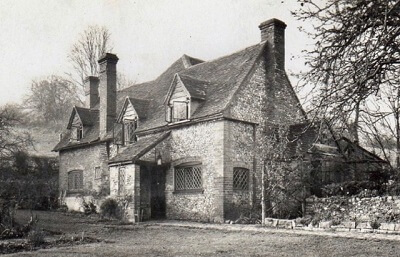
Having marched in her first suffrage procession age four, Ishbel was always politically active and was elected to the London County Council in 1928 and again in 1931. After her father retired in 1935, much to the delight of our local press, Ishbel bought a country pub in Speen. This was The Old Plow, in Flowers Bottom Lane which she ran for 17 years. She employed so many staff who had worked for her father that it became known as the ‘Chequers local’. The press had often speculated on possible romantic attachments, which Ishbel always denied but it seems that everyone was surprised in February 1938 when she married Norman Ridgley, a house decorator from Speen, and captain of the darts team at The Old Plow!
Sources
Ishbel Allan MacDonald Peterkin (1903-1982) – Find A Grave Memorial
Old Plow, Speen (closedpubs.co.uk)
Malcolm John MacDonald (1901-1981) – Find A Grave Memorial
British Newspaper Archive

